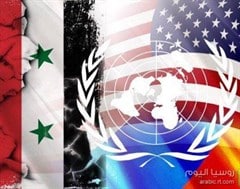As the Joint Plan of Action and Geneva II diplomatic initiatives, dealing with Iran and Syria, respectively, RPI academic advisor Hillary Mann Leverett speaks with Scott Horton for Pacifica Radio with words of caution to those who think the new Senate bill imposing more sanctions on Iran is dead and buried. She advises that:
the foes of the Iran nuclear deal, of any kind of peace and conflict resolution in the Middle East writ large, are still very strong and formidable. For example, the annual AIPAC policy conference—a gathering here in Washington of over 10,000 people from all over the country, where they come to lobby congressmen and senators, especially on the Iran issue—that will be taking place in very early March. There’s still a lot that can be pushed and played here.
Leverett believes a deal with Iran can be reached if the US could recognize Iran’s sovereignty and its legal nuclear capabilities. But she warns:
if negotiations with the United States fail, the thinking in Iran—and I was just there a couple of months ago—is that this will show both Iranians inside Iran and (this is critically important) countries like China, in other emerging markets…that Iran was the rational actor here. Iran tried its best to work within a framework of international law, the Nuclear Non-Proliferation Treaty, but it was the United States, as it has treated key countries in the Middle East for decades, that was unwilling to work within the parameters of international law and to recognize basic sovereign and treaty rights.
It is critically important for the US to get this right, argues Leverett, though the outcome is by no means certain.
On Syria, Leverett points out that even if the opposition to the Assad government had not turned out to be al-Qaeda-like jihadists why does the US think it has any business supporting armed rebels to overthrow the recognized government of a UN member state?
She explains:
This didn’t work in Iraq (before al-Qa’ida was there; of course, now al-Qa’ida is there, after we said we had a dog in that fight), it didn’t work in Libya, it didn’t work in Afghanistan. The idea that when we choose to become involved in a fight, it’s going to turn out to help us is just not borne out by history, but we continue to make the mistake.
Listen to the whole interview here.

